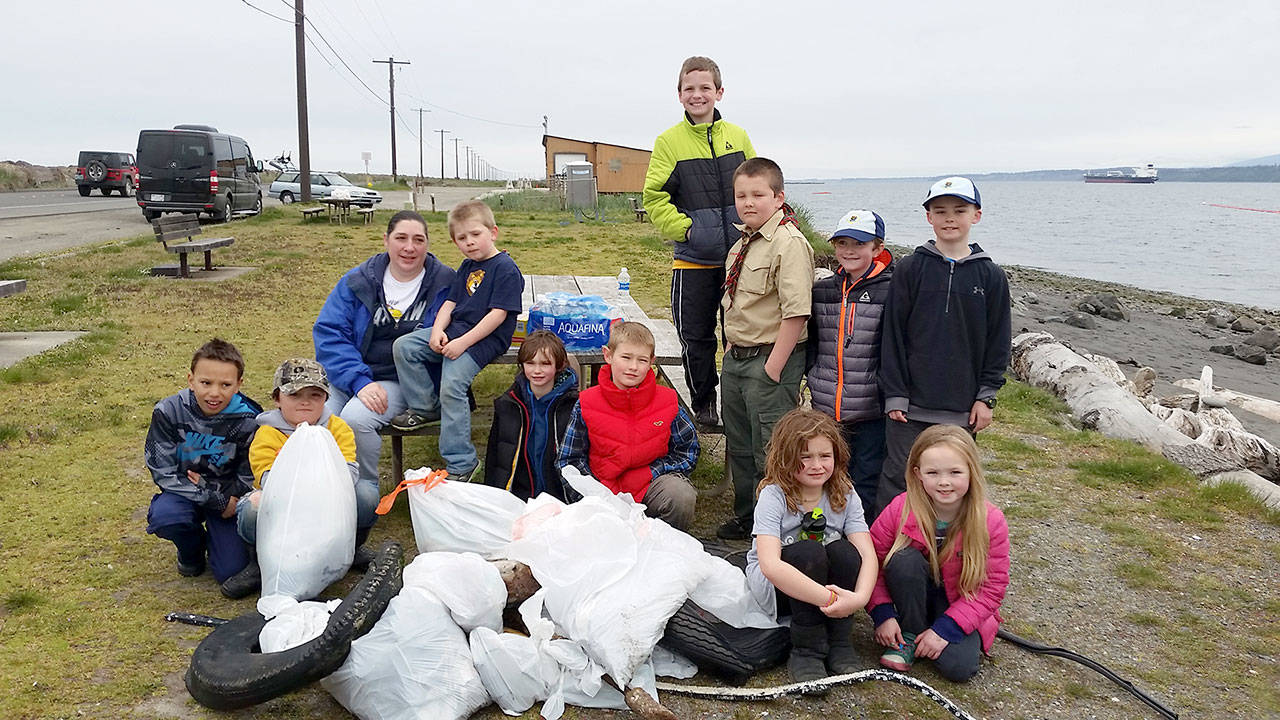They’re easy to point out. The couple who parks on the same beach at dawn. The children who know the safest spots to build sand castles at every tide. The runner who treads through sand and ocean breeze every evening at sunset.
They’re the frequent beachgoers. It’s “their” beach, after all.
Soon, these individuals will be able to adopt “their” beach and put it in writing.
A new Adopt a Beach program, spearheaded by Washington CoastSavers, encourages people to take ownership of a Clallam County park beach and clear it of marine debris at least three times a year. The individuals, families, groups or organizations who adopt a beach will have their names printed on a sign in the park.
Proposed beaches include Salt Creek at 3506 Camp Hayden Road, Port Angeles; Cline Spit at 199 Cline Spit Road, Sequim; Dungeness Landing at 298 Oyster House Road, Sequim; Port Williams at 2499 Port Williams Road, Sequim; and Panorama Vista at 282 Buck Loop Road, Sequim.
“The goal is to attract folks who see this as their beach,” Washington CoastSavers coordinator Jon Schmidt said. “I have no doubt the beaches will be adopted.”
Eventually, Washington CoastSavers hopes to expand the program to every beach along Washington’s coast, but currently has funding for a pilot program in Clallam County, Schmidt said.
Adopt a Beach partners will need to sign an agreement with Washington CoastSavers, agreeing to clean their beaches at least three times a year. Ideally, two of those times would occur during Washington Coast Cleanup on April 29 and International Coast Cleanup on Sept. 16.
WCC typically engages more than 1,000 volunteers to clean beaches on the outer coast and the Strait of Juan de Fuca, usually on the Saturday closest to Earth Day. ICC, a relatively new effort for Clallam County, rallies volunteers worldwide.
Last year, volunteers collected 20 tons of trash during WCC.
“The amount of garbage on our beaches is just despicable,” Schmidt said. “Every tide brings more garbage to shore.”
Rope and plastics, both commonly found items, endanger wildlife on the beaches, he said. Rope often entangles animals and plastics fill seabirds’ stomachs to the point where they can’t consume real food. They starve that way or they starve because the plastic has lodged in their throats, Schmidt said.
Before Earth Day ever existed, some Washington residents took a vested interest in this problem.
Around 1970, the first Washington beach cleanup crew, “Operation Shore Patrol,” hit the coasts. The Pacific Northwest Four Wheel Drive Association started the operation as a way to give back to the beaches where they recreated.
So Washington can boast one of the earliest formal beach cleanup efforts in the nation, Schmidt said.
Now, beach stewardship has emerged as a subject of global concern.
Schmidt has traveled to Japan twice in the past four years to give presentations about marine debris cleanups, in light of recent tsunamis.
He’s seen some tsunami-related debris make its way to U.S. shores.
“We know our trash is making the rounds as well,” Schmidt said.
And as much as that should anger residents, it also should unite us in the same effort, he said.
“It’s really one ocean,” he said. “We’re all connected by the same tides.”
Individuals or groups interested in adopting a Clallam County park beach can contact Schmidt at jon@coastsavers.org.
Sarah Sharp is a reporter with the Olympic Peninsula News Group, which is composed of Sound Publishing newspapers Peninsula Daily News, Sequim Gazette and Forks Forum. She can be reached at 360-452-2345, ext. 56650, or at ssharp@peninsuladailynews.com.



